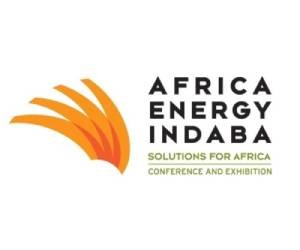Africa’s abundant clean energy resources, coupled with new investments in renewable energy technologies, have spearheaded Africa into a clean energy revolution. As reported by the International Energy Agency (IEA), renewable energy is believed to constitute approximately 50% of sub-Saharan Africa’s power generation growth by 2040, consequently accelerating Africa’s novice economies.
Receiving more sun than any of its continental counterparts, along with its vast geothermal, wind and wave energy capacity and progressive energy policies, Africa has immense potential to leapfrog fossil fuels. Renewable energy applications are essentially decentralised and similarly inexpensive. In effect, several African nations are currently implementing strategies to harness renewable energy solutions to capitalise on such benefits. For instance, sustainability has increasingly become a key focus for Rwanda and Ethiopia, while Kenya has pledged a complete transition to clean energy.
Africa is a rapidly emerging investment opportunity. Home to several of the globe’s fastest-growing economies, the African region is forecast to sustain an overall economic growth of 3.8 percent. Incidentally, 20 African economies are projected to expand at an average rate of 5 percent or higher over the next five years. Irrespective of increasing debt constraints and a proliferating population, Chinese-subsidised funding is expediting energy infrastructure development throughout the region.
Furthermore, its rapidly increasing deployment of automated technologies over the next two decades implies the renewable energy realm will become progressively self-optimising and efficient. As new technological advancements, including battery storage and microgrids, become more affordable and durable, the continent’s renewable energy revolution is set to expand, powering Africa’s growing economic proficiency.
There is a close correlation between energy consumption and economic development. Africa’s population of more than 1.3 billion people renders an immense and mounting need for reliable energy. By 2040, sub-Saharan Africa is predicted to consume as much electricity as Latin America and India did in 2010 combined. Deployment of solar panels, small-scale wind and hydro innovations, as well as energy saving mechanisms, could lead to clean energy technologies offsetting the exhaustive investments traditionally required for energy. The U.S. Department of Energy predicts that utility solar PV costs will fall 60 percent by 2050. Coupled with the declining price of battery storage, wind and solar could support a distributed energy infrastructure that drives both Africa’s social and economic development for decades to come.
Long-term capital investment is essentially the key to Africa’s clean energy future. Where Africa’s vast renewable energy resources remain unexploited, the public sector’s capacity to spearhead both clean energy financing and technology transfer has enormous potential to substantively transform the region as we know it.
With this said, Africa’s renewable energy revolution is a prevalent theme to be thoroughly explored at the upcoming Africa Energy Indaba, the continent’s most revered event of its kind. Focused panel discussions will be hosted discussing key issues including:
- Democratisation, building energy businesses and access to energy for all
- Decentralisation, the role of renewable energy and mini & off-grid solutions
- Energy Storage, unlocking large scale use of renewable energy
Attendees are guaranteed renewed insights and perceptions of their businesses and the sector in which they operate. In addition, they will be furnished with the tools and strategies to take their business operations to the next level, thereby enabling them to compete on both domestic and global fronts like never before and secure business.










